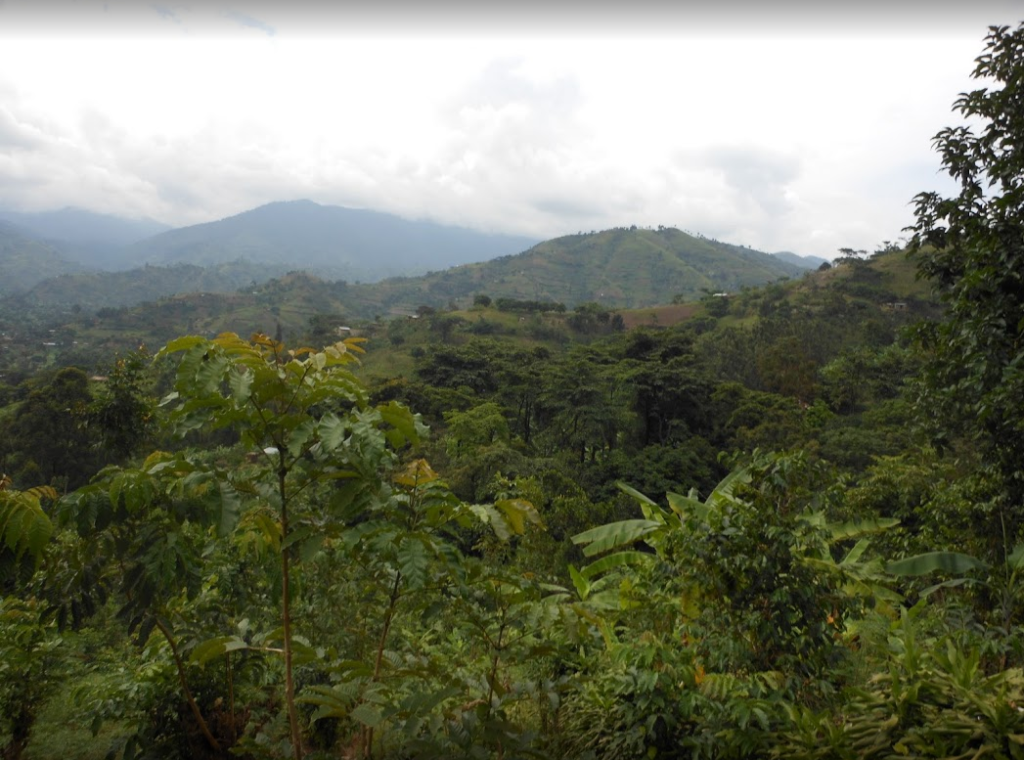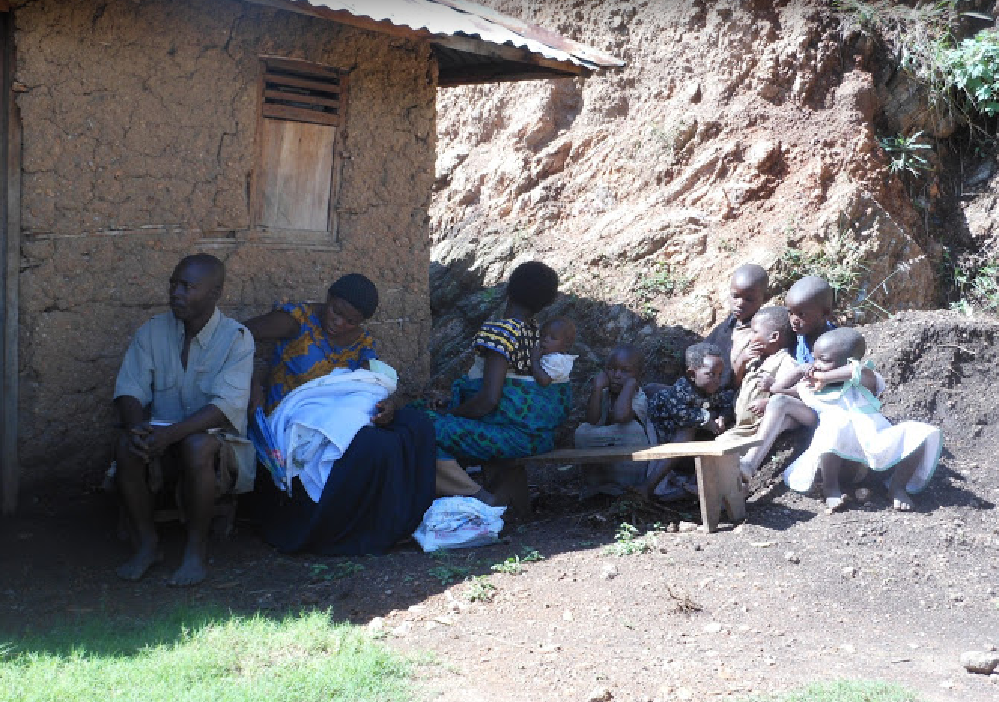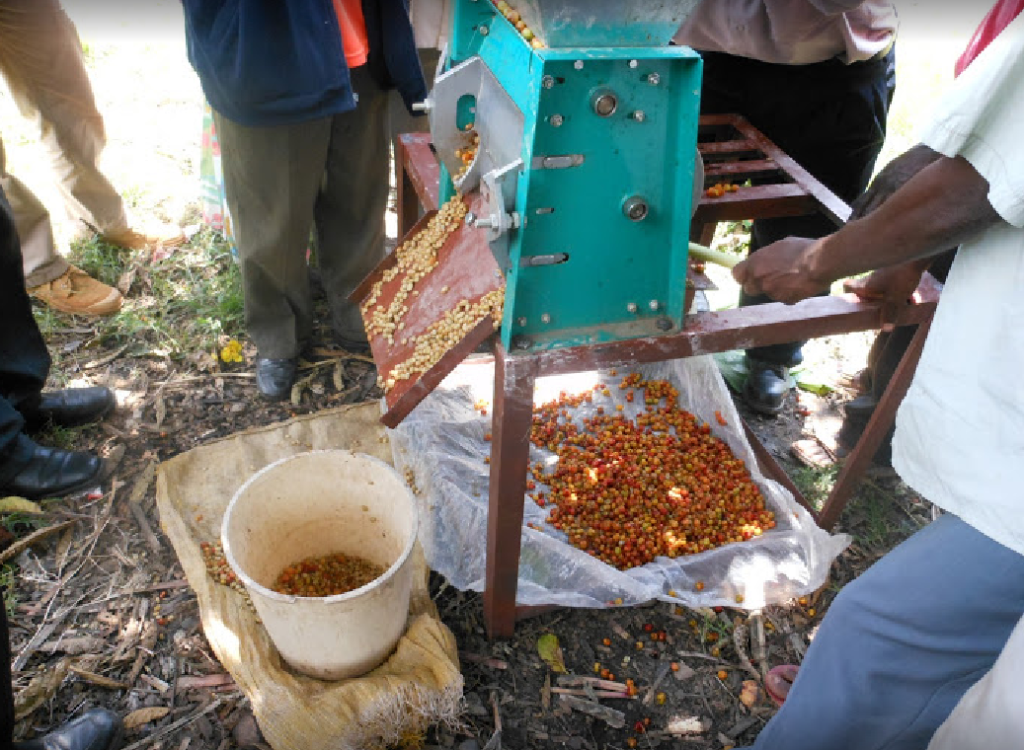We are back from Technical Training – i.e. spending a few days immersed in the types of activities we may be encountering with our own NGO (non profits). It was a 6 hour ride in a bus filled with mostly Ugandans and live chickens. Yes – after a lunch break where, lusting after anything that was not Matoke and Posho we ordered hamburgers and were served a meatloaf patty wrapped in slices of ham to make the “HAM” burgers – we climbed back in the bus to find our seats taken. We finally squeezed into the back seats over the rear axel and wondered why anyone ever spent money on a rollercoaster ride when one could experience a much more horrifying experience in the back of a Ugandan bus. This was all to the background chatter of hundreds of live baby chicks stacked in boxes in the overhead luggage storage. We arrived in the pouring rain to negotiate the next stage of travel at a teaming taxi park. The standard number of people crammed into a taxi is 14 and they were damn well determined to do this with us. After much loud negotiating, we were able to get a larger taxi (a toyota mini van of sorts that holds 7 comfortably), the 10 of us with luggage piled in for the next two plus hours through the mountains. Arriving at dusk, we we shown to our quarters. We were 4 to a room, no lights, no screens, one toilet serving 30 people and several dirty latrines. By then, we were non-plussed, but awaited a dinner of: matoke, beans, rice – but no posho.

The training was excellent however and we found ourselves the next day in a small village of coffee farmers, cultivating mountain sides that a goat would have trouble climbing. In the context of improving profits, this NGO has done amazing work with 3800 individual farmers (1-2 acres of land each) and is changing the culture in the process.
By this I mean that they are getting men to share in the workload (women do ALL of the work here – climb, dig, raise children, cook harvest, etc.), share decision making, reduce domestic abuse, curb drinking, etc. It is daunting work, but it is happening and the testamonials to these changes are stunning. Some women had escaped from war camps to live in the bush and are now successful coffee farmers. Success takes on a different scale here: think in terms of them living in a mud building and having food as success.
To access the model farm we hiked up one of those mountains on straight up trails that would make a goat faint. It was challenging even without my aversion to high places. I wondered how I begat sons who climb mountains and jump out of airplanes and wished for some of their oomph.

Perched on a flat space the size of a one car garage, we found a family of 10 living in a mud brick hut cultivating a farm of 500 plus coffee plants and hauling water and everything else needed for daily life up the mountain and doing this multiple times per day. They consider themselves fortunate because they have quadrupled their harvest in the last year or two and look forward to building a larger mud brick hut near their current house.

All of their coffee harvest and post-harvest work is done by hand. There is no electricity, but they have a couple of new machines that they will run with generators, until electricity makes it up the mountain. President Musceveni (spelling) has personally promised it by December.
So that’s the lay of the land at the moment. Came back with tools I can take to my site in Gulu, reminded that one person can make a difference but that it starts at the grass roots level.
Going to study Acholi again as ALL of my language skills seem to have been bounced out in the bus ride. Tests tomorrow…
